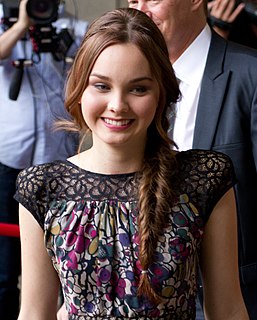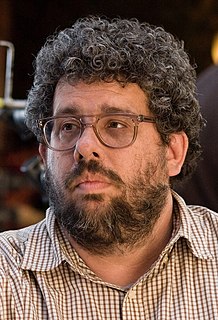A Quote by Dwayne Johnson
When a family film is done well, there's a character that every member of the audience can relate to. I want to be one of those guys.
Related Quotes
I always want the audience to identify with my character in some way. I mean, sometimes you'll get characters that aren't very identifiable. Sometimes you can't relate to your character at all. I think it's important to keep the audience interested. But the best advice that I've gotten is to live in the moment.
With every character you play you're always trying to put facets of yourself into those characters. I think Asher, at the beginning of The Giver, when he's goofy and a little bit of a rule-breaker, a little bit of a jokester, I align with him. But then he kind of transforms throughout the movie and becomes someone I don't necessarily relate to. I relate to Adam McCormick's sensitivity. He's more quiet and introverted, and I definitely have those moments as well.
I think the superhero platform gives the female character, you know, a relate-ability for the male audience as well. So, I think that's why people are kinda gravitating towards female super hero characters, and also female characters in general as big parts of the film. So, that's great for us, female actors who want to do roles like that, which is really great.
I don't understand choreographers who say they don't care about the audience or that they would be happy to present their works non-publicly. I think dance is a form of communication and the goal is to dialogue with the audience. If an audience member tells me they cried or that the dance moved them to think about their own journey or a family member's, then the work is successful.
You have a certain objectivity, as a member of the audience, and you can come away maybe being provoked into a certain discourse or a certain arena of questioning, regarding how you would deal with things that your character has to deal with. Whereas when you're doing a film, once you start asking, "What would I do?," you're getting the distance greater between yourself and the character, or you're bringing the character to you, which I think is self-serving, in the wrong way. The idea is to bring yourself to the character.
I just want to portray a very honest character that displays traits that people can truly relate to and can help them - the audience and myself because I learn from the characters as well - help them see themselves in a perspective that is outside of what they know already, and grow from that experience.
There are two keys to productive missionary work -- (1) family-to-family friendshipping (when a member family shares the gospel with a nonmember family) and (2) cooperation between members and the missionaries to reach people...Every member knows of nonmembers he or she can refer to the missionaries. Every father, mother, and youth in this church should share the gospel by giving a Book of Mormon, telling the account of the Prophet Joseph Smith, or inviting our acquaintances to a special meeting.



































